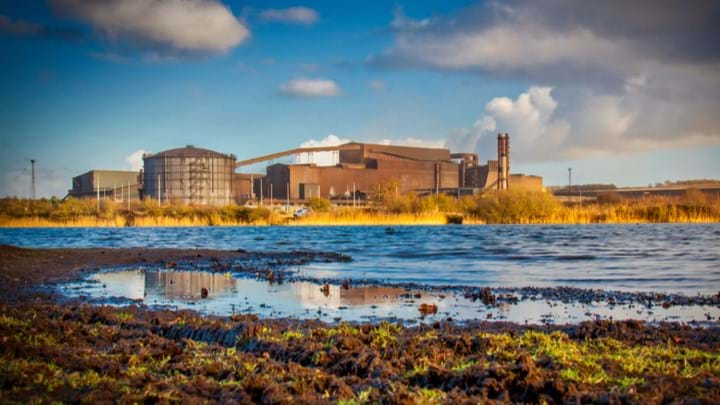British Steel to close Scunthorpe blast furnaces after rejecting £500m government rescue package

BRITISH STEEL today announced plans to close its two blast furnaces in Scunthorpe, UK, with the loss of around 2,700 jobs.
The announcement follows reports that Jingye, British Steel’s Chinese owner, rejected an offer of £500m (US$647m) from the government on Monday to rescue the loss-making company. Jingye is believed to have requested at least £1bn from the government – double the amount Tata Steel secured for an electric arc furnace at Port Talbot last year.
Unite general secretary Sharon Graham accused British Steel of “trying to hold the government to ransom”, adding that the government’s offer this week would have come with “long-term job guarantees”.
In a statement today, British Steel said the decision was made after concluding that operations were “no longer financially sustainable”.
British Steel has begun consulting with unions on the timing of the blast furnace closures, which could happen as early as June. The company is also considering keeping the site open until September or another “future point” not specified.
In addition to shutting down the blast furnaces, British Steel will close all steelmaking operations at Scunthorpe and is considering closing the site's rod mill. This too will be subject to the consultation.
Graham said: “This announcement of job losses is quite simply a disgrace. British Steel is guilty of trying to hold the government to ransom, while using its dedicated workforce as pawns.
“British Steel must now withdraw its job threats and work with the government and Unite on a sustainable way forward which is in the best interests of the workers, their communities, and the wider economy.
“The UK has the opportunity of becoming a leader in green steel and British Steel should be at the forefront of that transformation.”
Zengwei An, CEO of British Steel, said: “We understand this is an extremely difficult day for our staff, their families, and everyone associated with British Steel. But we believe this is a necessary decision given the hugely challenging circumstances the business faces.
“We remain committed to engaging with our workforce and unions, as well as our suppliers and customers during this time.”
Losses and tariffs
Jingye said they have invested more than £1.2bn in British Steel since acquiring it in 2020 but had been running losses equal to £700,000 per day.
The company’s statement also cited “the imposition of tariffs” at 25% on steel exported to the US, which came into force earlier this month, as well as “higher environmental costs relating to the production of high-carbon steel” as driving factors for the company’s decision.
British Steel’s exit from Scunthorpe is a blow to the government’s plans for a green steel industry in the UK, which was promoted at the launch of a public consultation last month and received warm reception from unions and industry.
Recent Editions
Catch up on the latest news, views and jobs from The Chemical Engineer. Below are the four latest issues. View a wider selection of the archive from within the Magazine section of this site.




